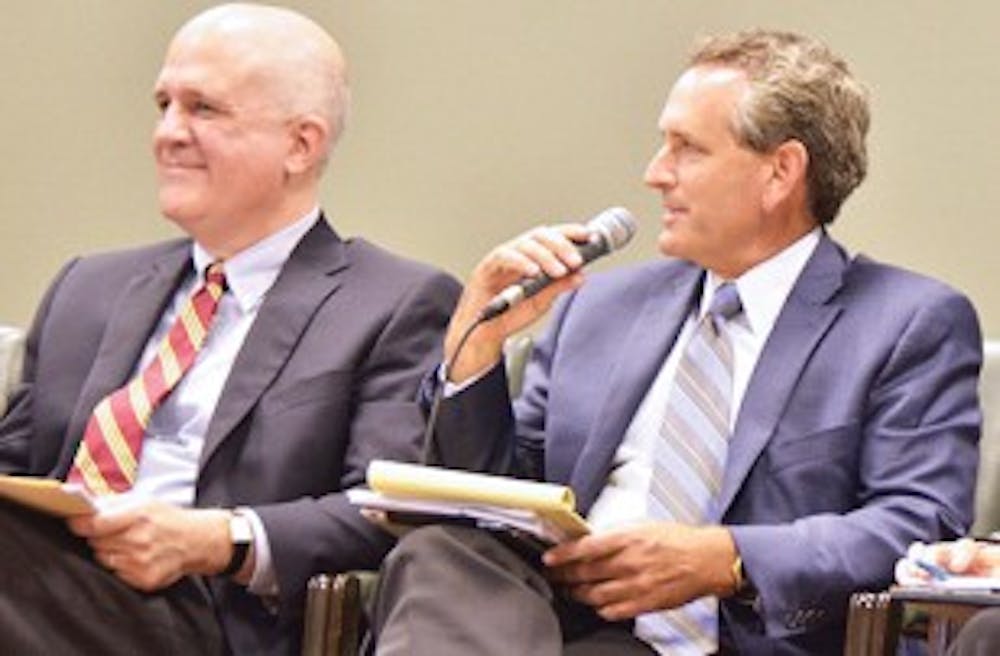Jay Smith, a history professor, proposed the resolution in response to the publication of the Wainstein report in October 2014. Smith said the resolution was meant to establish a standard for the recruitment of student-athletes.
“It is just distressing to members of the athletic reform group that the faculty as a collective has not been able to muster the will to take a stand on an issue that was integral to the scandal,” Smith said.
“So we wanted the faculty to make a statement. More broadly, reflecting the reality of our scandal, we wanted the University to try to ensure that one of the causes of the scandal, namely the presence of unprepared students on the campus, would be eliminated.”
Smith said University admissions is an underaddressed cause of the scandal exposed in the Wainstein report.
“The University so far, in the handling of the scandal, has basically refused to acknowledge that the scandal really started in Jackson Hall, not Howell Hall,” Smith said. “It started with admissions policies that allowed a number of unprepared or underprepared athletes onto campus who then had to be taken care of with curricular shortcuts of various kinds.”
Beverly Taylor is an English professor and a voting member of the Advisory Committee on Undergraduate Admissions, where the Faculty Council referred Smith’s resolution in February. She said the committee recommended that the Faculty Council not pass the resolution because the current admissions process for students with special talents is effective.
“I like the way our admissions policies are implemented by the Office of Undergraduate Admissions because they try to assess that both potentials — that can’t really be measured by a GPA, and I think they’re doing a splendid job,” she said.
Smith said the pressure to keep student-athletes eligible was what created curricular shortcuts. He said passing the resolution to end the admission of these students would have been a step in the right direction.




